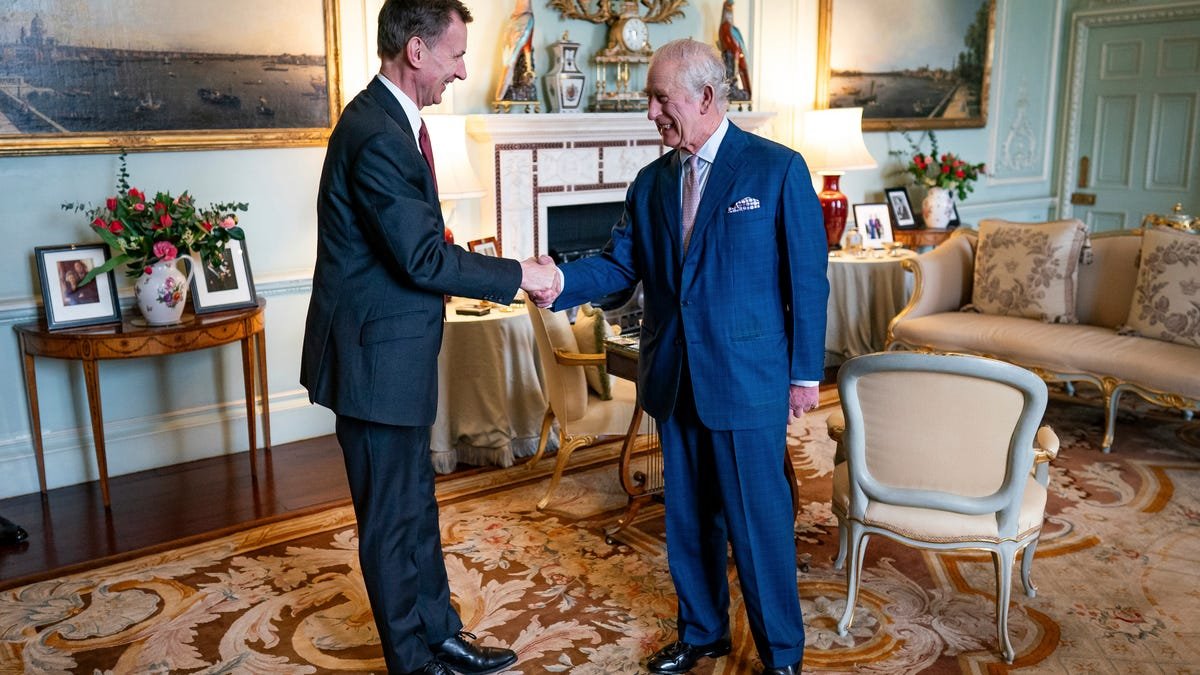LONDON (AP) — In the run-up to the U.K.’s general election that opinion polls show the governing Conservative Party losing, Treasury chief Jeremy Hunt will seek to regain the political initiative by announcing tax cuts Wednesday during his annual budget statement.
With the British economy hitting one definition of recession and public finances stretched, he hasn’t got much room for big tax cuts — unless he lays out a plan for another period of austerity for already cash-starved public services.
In comments released by the Treasury ahead of his budget, Hunt is set to tell Parliament that the British economy withstood the coronavirus pandemic and the sharp spike in energy prices following Russia’s invasion of Ukraine, which sent inflation soaring and prompting the Bank of England to raise interest rates aggressively.
“Of course, interest rates remain high as we bring down inflation,” he plans to say. “But because of the progress we’ve made, because we are delivering on the prime minister’s economic priorities, we can now help families with permanent cuts in taxation.”
Hunt, who had a pre-budget audience with King Charles III at Buckingham Palace on Tuesday, is widely expected to announce a cut in national insurance — a tax that 27 million employees pay — by 2 percentage points, to 8%. If that materializes, it will follow his decision to cut the rate by the same amount in November.
The cut is expected to be partly paid for — ironically — by a series of tax increases, potentially on business class airfares, vapes and a higher levy charged to oil and gas producers. There also has been speculation that he may abolish “non-domiciled” tax status, which allows some wealthy individuals to avoid paying U.K. taxes.
Whatever emerges, it’s far from certain that anything will change the political narrative. After all, the tax cuts announced in November have done nothing to revive the Conservative Party’s ratings — poll after poll shows the Conservatives, in power since 2010, heading for one of their biggest defeats to the main opposition Labour Party.
Hunt’s boss, Prime Minister Rishi Sunak, will certainly hope that a turnaround comes about soon as he considers when to call the election, which has to take place by January 2025.
He has previously indicated that the election will most likely be in the second half of this year. However, Sunak has not ruled it out this spring, and Wednesday’s tax-cutting budget could act as a launchpad for that.
Sunak and Hunt have restored a measure of economic stability after the short-lived premiership of Liz Truss, which foundered after a series of unfunded tax cuts roiled financial markets and sent borrowing costs surging.
But U.K. households are struggling under the worst cost-of-living crisis in decades. And economists warn that the tax burden will remain near record levels regardless of what the budget delivers as the government recoups the hundreds of billions of pounds that it spent during the pandemic and the energy price shock.
Adam Corlett, principal economist at the Resolution Foundation think tank, said there were “huge questions” about the need for tax cuts this year, given the outlook for public spending and the need to reduce our national debt.
“But, while this is going to be a tax-cutting election year, it is sandwiched between significant past and future tax rises, with the budget likely to only add to the number of tax increases coming in after the election,” he said.


